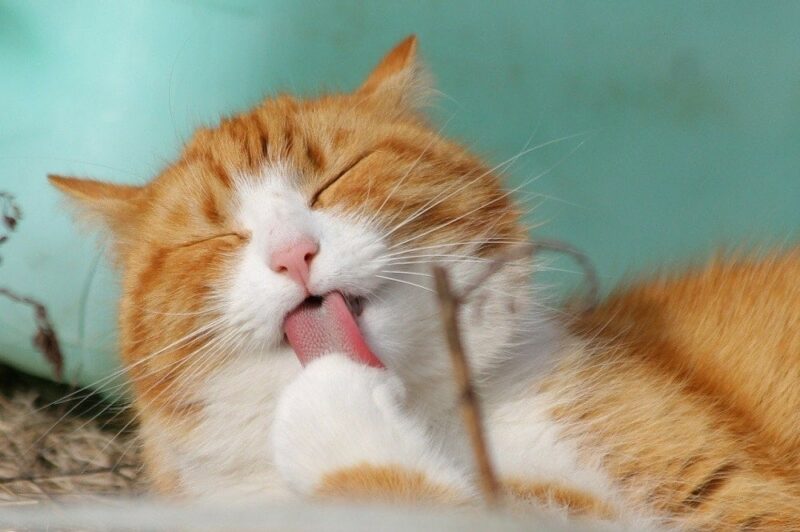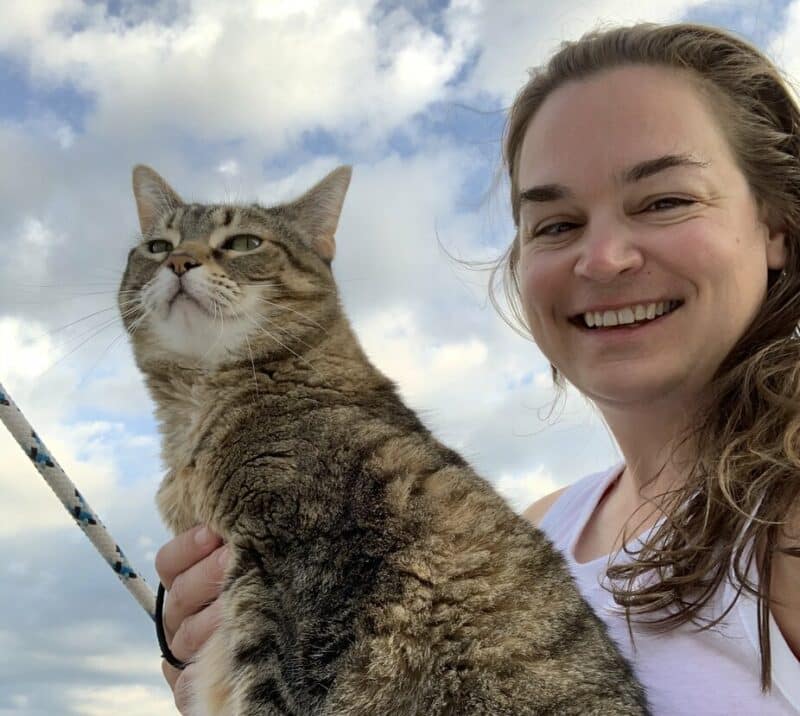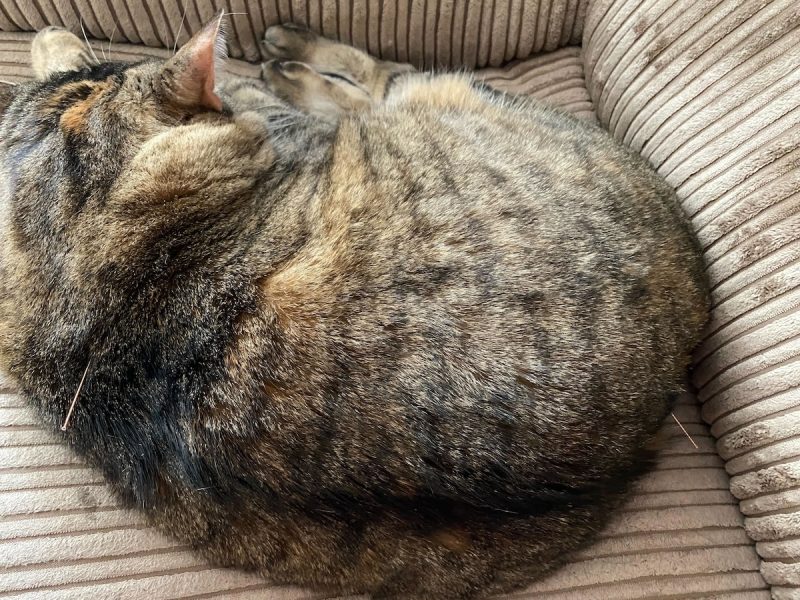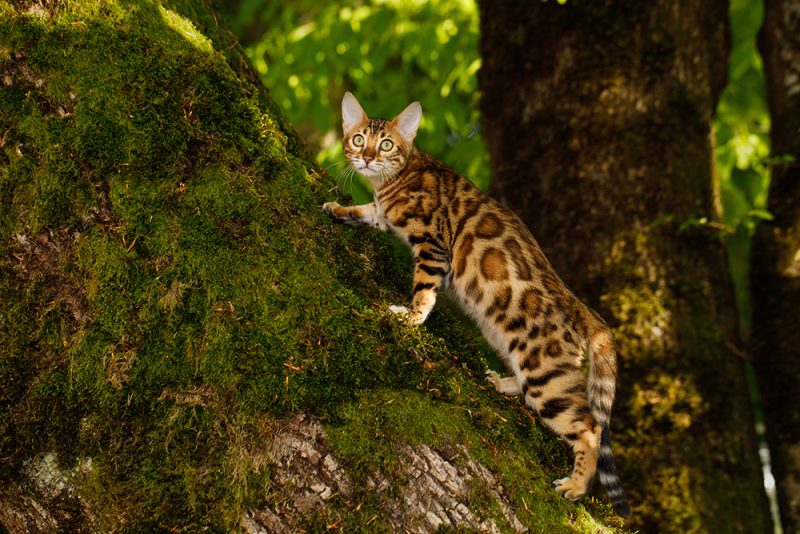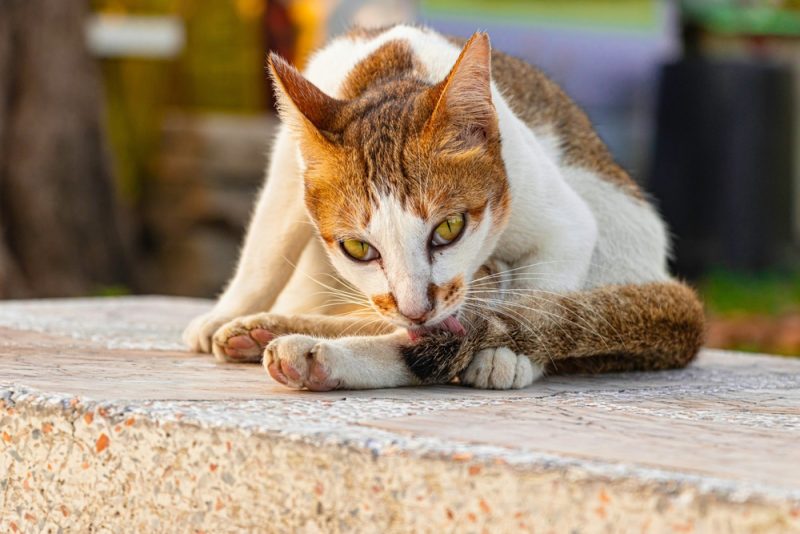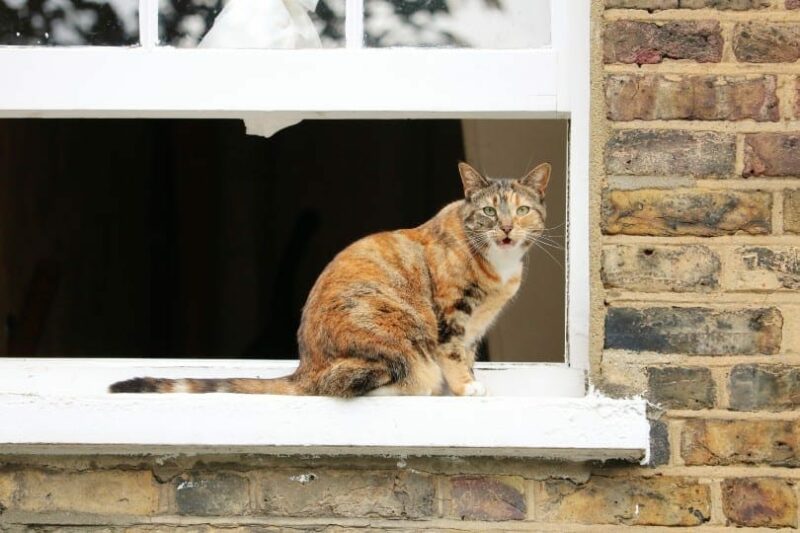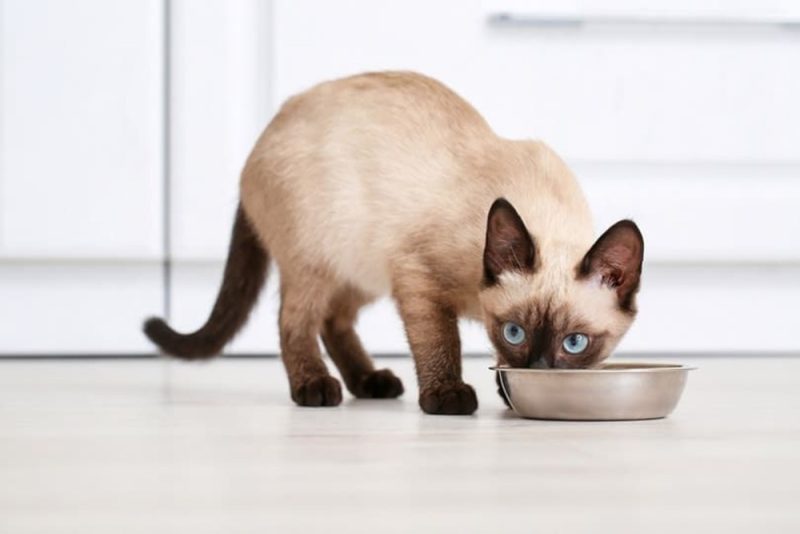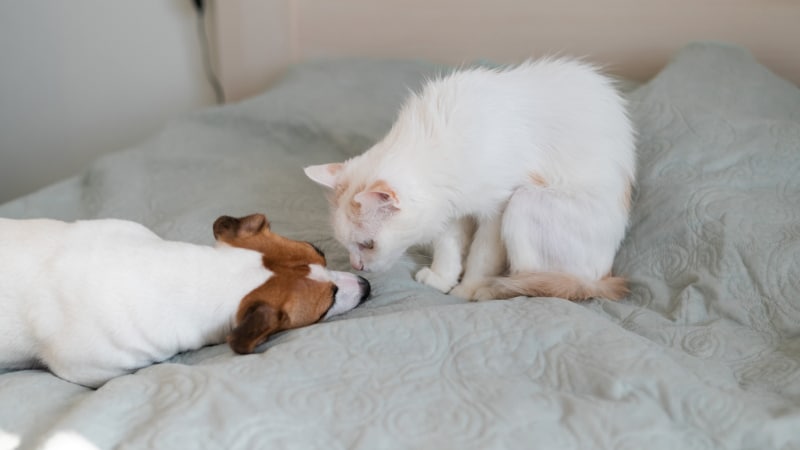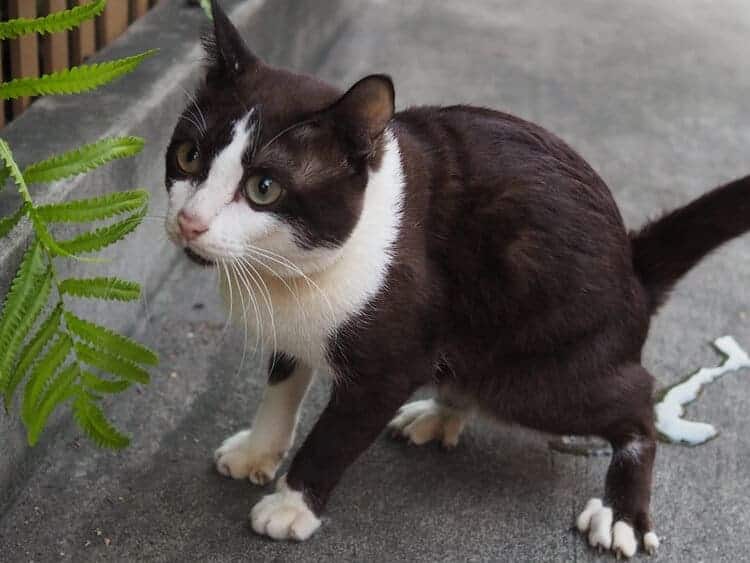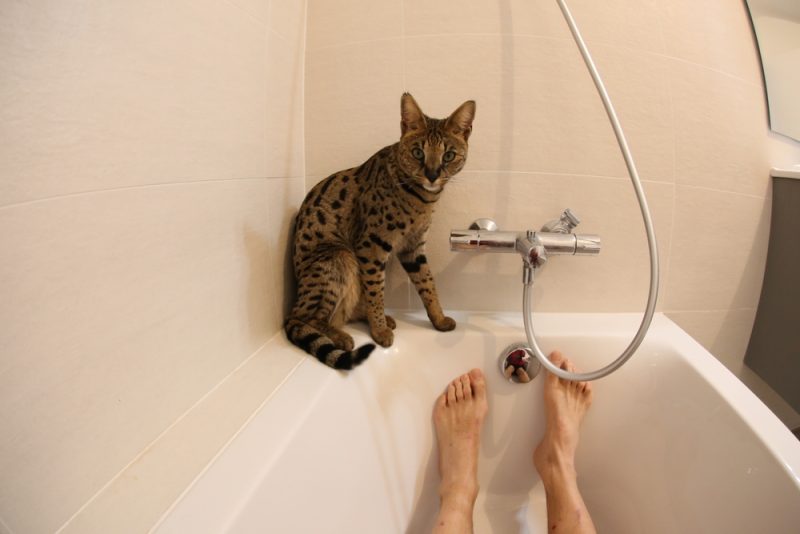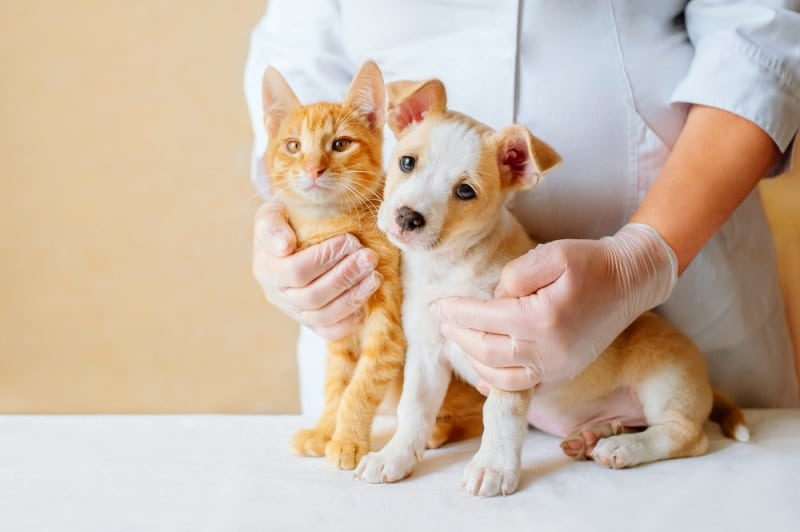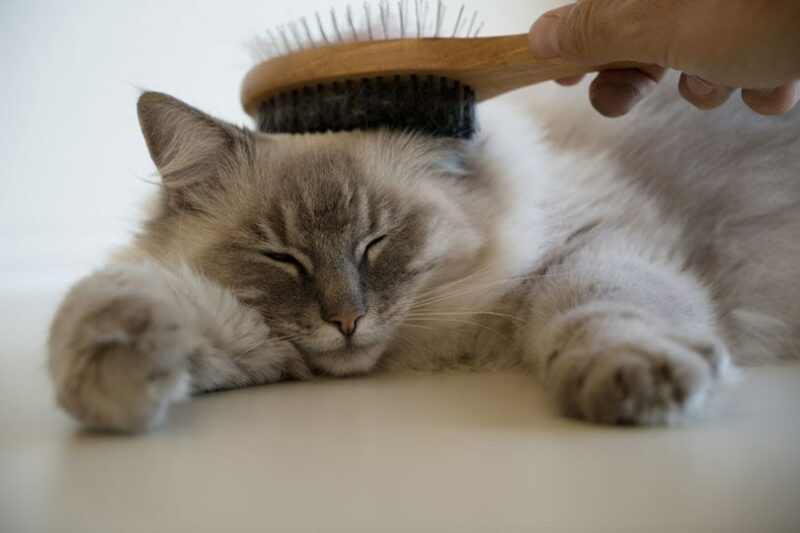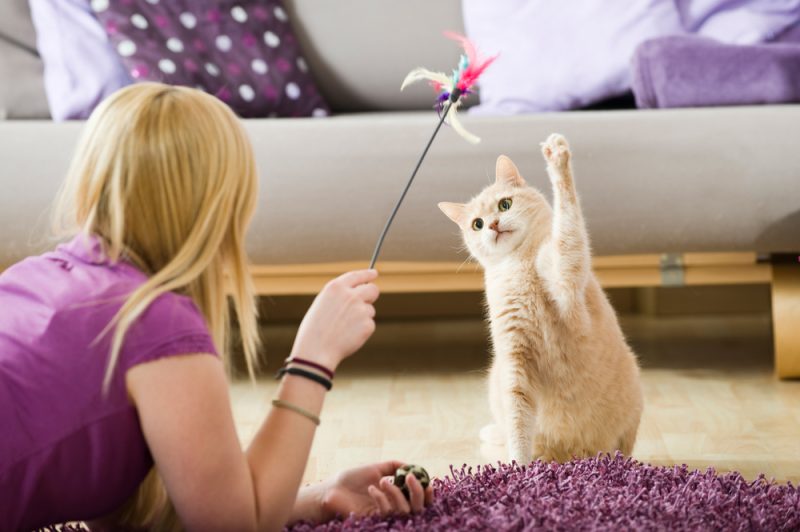In this article
Cats groom themselves by licking periodically throughout the day. This behavior is completely normal for felines, in fact they can spend up to half their waking hours grooming. However, some cats will obsessively lick themselves which may signal a problem.
Obsessive licking might go unnoticed at first until you start seeing hair loss or irritation in the area. Although some cats are more enthusiastic groomers than others, there comes a point when their licking becomes obsessive and needs to be stopped.

Why Should You Stop Your Cats from Obsessively Licking?
It is normal for cats to lick themselves often while they groom, but not if it becomes obsessive or causes them harm.
- Stress
- Pain
- Anxiety
- Boredom
- Allergies
- External parasites (fleas)
- Cognitive decline
Cats may find comfort and relief from itchiness and pain by licking themselves for an unusually long time. This is partly because licking releases endorphins that naturally make a cat feel good. It no longer becomes a normal part of their grooming routine, but an obsessive habit that usually has an underlying cause that needs to be rectified. They may stop other activities to lick themselves in specific spots, often until the surrounding fur is wet and irritated. As they continue to lick obsessively, they may end up with bald spots and skin lesions, which in turn exacerbates the irritation and excessive licking.
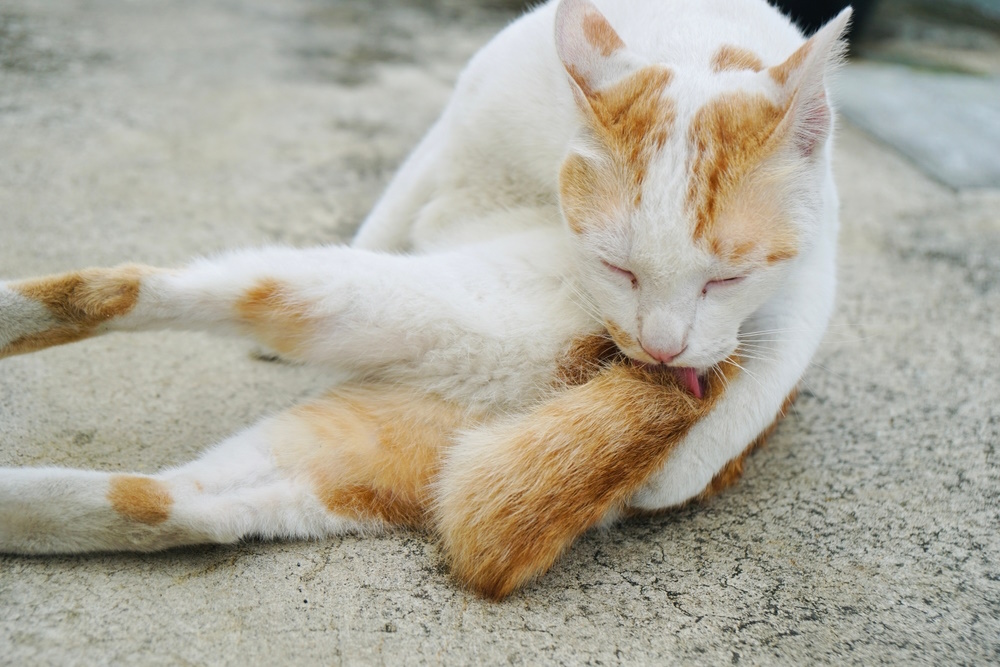

The 4 Vet-Reviewed Ways on How to Stop Obsessive Licking in Cats
The first step to stopping obsessive licking in cats is to determine and rectify the root cause of the behavior. That is the main long-term solution for a cat that obsessively licks themselves. Trying to distract your cat from licking themselves or using deterrents like E-collars will be a temporary solution. Some temporary methods can be stressful for your cat too, which may end up fueling their obsessive licking.
1. Take Your Cat for a Checkup at the Vet
Once you notice that your cat is obsessively licking themselves, it is important to take them to a veterinarian. The veterinarian will assess the severity of the situation and help you determine possible causes. Once a possible cause is found, that’s when steps can be taken to help your cat overcome the behavior.
If it is medical-related, the veterinarian can prescribe necessary treatments which may include pain management, medications to tackle itch and other treatments to make your cat more comfortable. If the cause is behavioral, the veterinarian will help with suggestions on managing your cat to help address and deter the behavior.
If you need to speak with a vet but can't get to one, head over to PangoVet. It's an online service where you can talk to a vet online and get the advice you need for your pet — all at an affordable price!

2. Consider Medications or Topical Treatments
Cats who are obsessively licking from pain or anxiousness may benefit from medications. This could range from pain medications to address pain or calming medications if it is behavioral. Cats who have caused injuries to themselves from their obsessive licking may require topical treatments and medications to treat any secondary infections, aid in the healing process and alleviate skin irritation.
Since cats may lick obsessively if they are suffering from skin allergies, managing the underlying allergy is essential to stop the behavior.
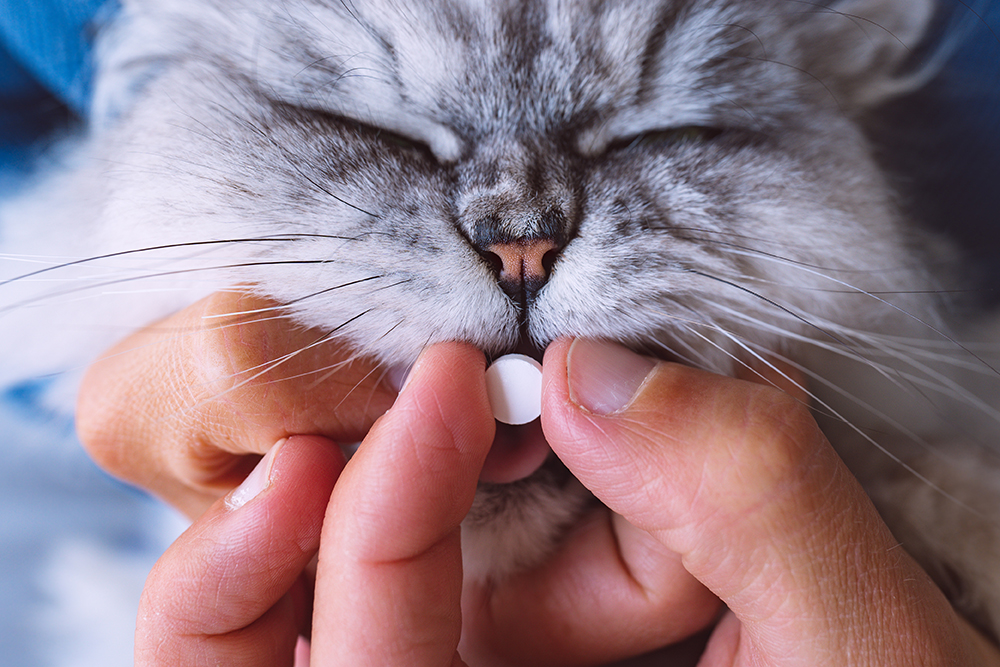
3. Address Any Stressors
Stressors for cats could range from changes in their environment to new pets and household disruptions. Cats are not fond of change, which can make them anxious and stressed. Psychogenic alopecia refers to overgrooming due to a behavioral problem that has mental or emotional origins.
Obsessively licking could be your cat’s way of dealing with their stress and it’s up to you to help them maintain a normal routine. You should try to eliminate stressors like loud noises for example, if it is a reason for your cat’s stress or anxiousness.
Any new pets should be properly introduced and socialized to your feline to help them get along better. If you find that the new pet is irritating and stressing out your cat, it is a good idea to give your cat space and work on controlling the behavior to avoid stressing your cat further.
4. Offer Enrichment
Cats can get bored without proper enrichment and exercise. Their frustration and stress from a lack of enrichment may result in obsessive licking, as this is their way of coping. It’s important to ensure that they have plenty of toys and fun activities to do that can keep them mentally and physically stimulated.
You generally want to choose toys that appeal to your cat’s natural hunting instincts, as this is guaranteed to keep them interested. Providing vertical space with cat trees that have shelves and hiding spaces is important as cats like to be up high. Scratching is also a natural behavior, so cats also need to be provided with acceptable scratching posts and materials.
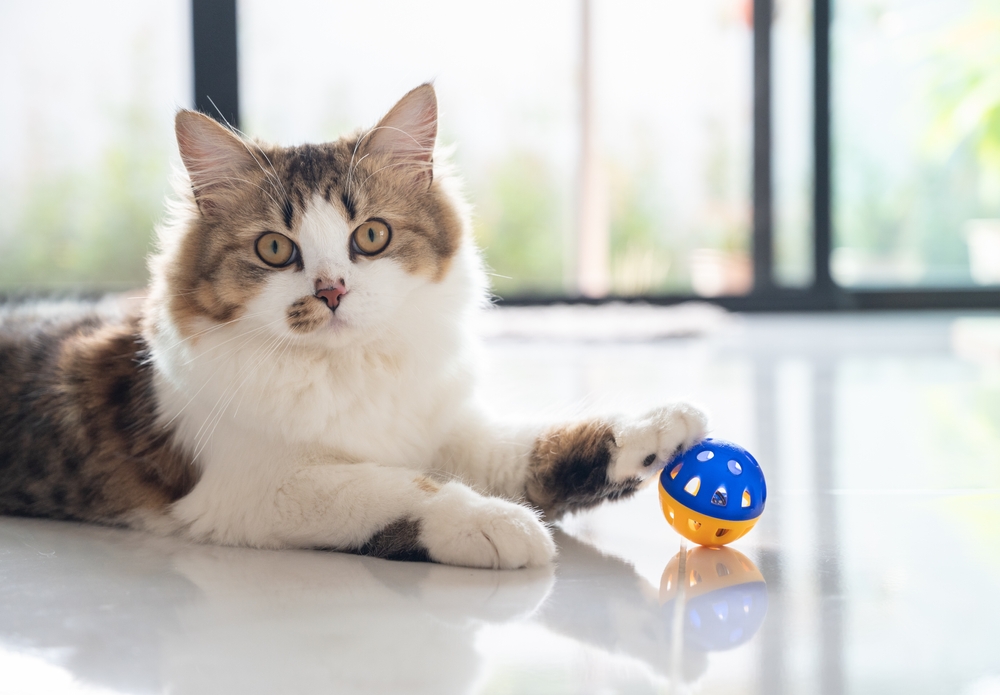

Conclusion
Obsessive licking in cats has various potential causes ranging from pain to emotional distress, parasites and allergies. The best way to stop their obsessive licking is by addressing the root cause and finding an appropriate treatment. This should be done with the help of a veterinarian who can help rule out potential medical issues and administer necessary medications. They will also help you identify ways to reduce stress and enrich your cat’s environment.
Featured Image Credit: TeamK, Pixabay
